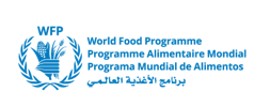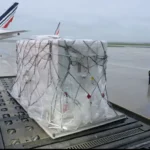FOOD INFLATION AND CURRENCY COLLAPSE THREATEN FOOD SECURITY

CAIRO – As the Middle East and North Africa (MENA) region celebrates the beginning of the Muslim Holy Month of Ramadan, it is experiencing a deepening food security crisis due to the combination of high food inflation and collapsing currencies. This is affecting millions of people across the region, particularly those living in countries already facing conflict and instability.
Food prices are skyrocketing and many countries in the region are dealing with crippling budget deficits, high levels of public debt, currency devaluation and dangerous levels of inflation.
Five countries in the region have seen food inflation going beyond 60 percent just this year with Lebanon and Syria facing triple-digit food inflation at 138 percent and 105 percent respectively. In Iran, Türkiye, and Egypt, annual food inflation is more than 61 percent, making it difficult for families to afford essential food items like bread, rice, and vegetables.
“The region’s dependency on food imports means millions of people – particularly the poorest – are vulnerable when internal or external shocks push up food prices,” said WFP’s Chief Economist Arif Husain. “The combination of high food inflation, collapsing currencies and stagnant incomes has left families unable to put food on the table.”
Global food prices remain at a 10-year high despite a slight decline in recent months. “These fluctuations will not dent domestic food inflation in countries facing a toxic combination of tumbling currency values and high inflation,” added Husain.
According to February data, four out of 15 countries on WFP’s currency watch list are in the region. In Lebanon, Egypt, Syria, and Iran, currencies have depreciated between 45 and 71 percent over the past 12 months alone.
“In 2019, an average Syrian family earned enough to buy more than double what they needed every month for food,” said WFP Country Director and Representative in Syria Kenn Crossley. “Right now, that same income, which has not gone up, can only buy a quarter of what a family need.”
At the same time, food production in the MENA region is curtailed by both conflict and a deepening climate crisis. In Iraq and Syria, prolonged droughts and the effects of conflicts have reduced cultivated areas and cut food production. The region has been hit hard by the climate crisis, and is seeing prolonged droughts and heat waves, wildfires, flooding, erratic rainfall and landslides.
As the crisis continues, it is critical that governments, international organizations, and donor countries take action to address food security across the region. This includes increasing funding for humanitarian assistance, supporting local farmers to boost food production, and addressing the underlying causes of conflict and instability in the region.
“Governments need to invest more in agriculture across the region where almost all countries are import-dependent,” says WFP Regional Director for the Middle East, North Africa and Eastern Europe Corinne Fleischer. “This is a long-term strategy that will not help the poor cope with price rises now but will pay dividends some years down the line.”
In response, WFP is using integrated approaches, which aim to address the root causes of food insecurity while at the same time meeting immediate needs. In 2023, WFP is targeting nearly 35 million people across the MENA with food and nutrition assistance and working to increase the resilience of the most vulnerable in the face of regional and global shocks.
Last Updated on 2 years by News Desk 2












